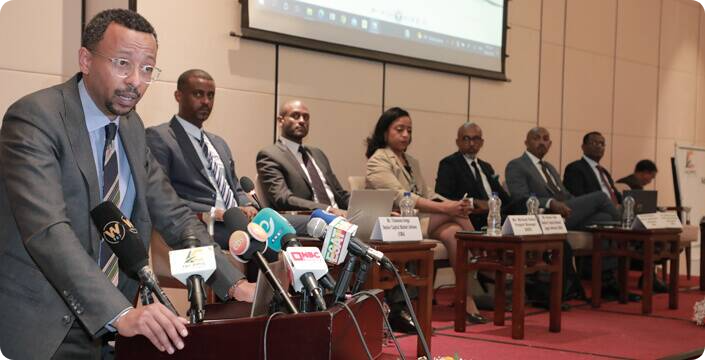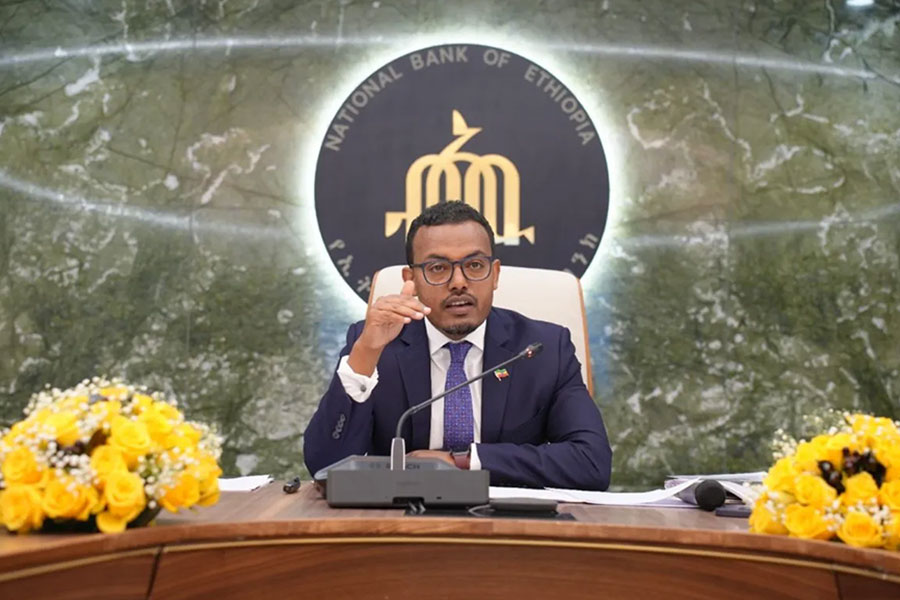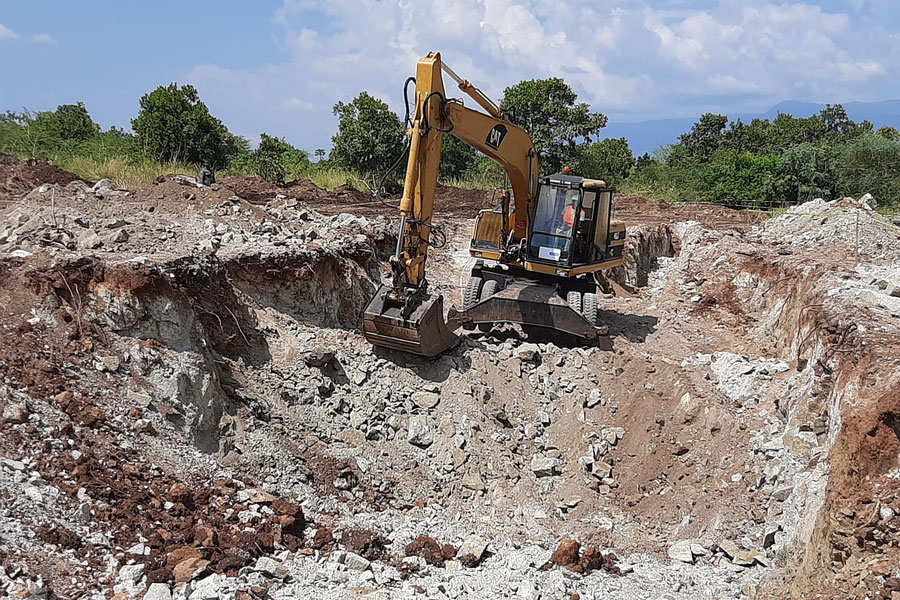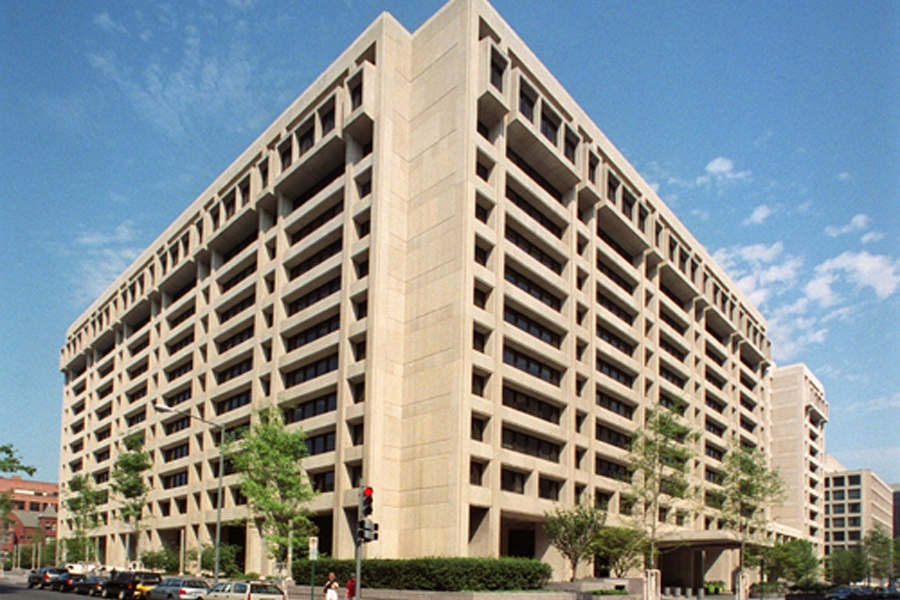
Last week saw an uncharacteristically polemical moment after parliamentarians questioned three nominees of Prime Minister Abiy Ahmed's (PhD) for ministerial positions, tabled for their confirmations on January 24, 2023.
Alemu Sime (PhD), who previously served as state minister for Mines, was nominated to serve as the minister of Transport & Logistics, while Habtamu Tegegne, the former director general at Ethiopian Roads Administration (ERA), assumed the position of minister of Mines.
The reading from the Chief Whip of the incumbent Prosperity Party (PP), Tsefaye Beljige, of the credentials and expertise of the two ministers revealed their backgrounds suited for the reverse positions. The seemingly misplaced appointment raised confusion among MPs, such as Birhanemeskel Tena (PP), who probed whether the roles should be reversed. However, the Chief Whip retorted that the nominations are "well thought out and informed."
"Their expertise is not that unrelated. Habtamu can manage the mines sector as he has a background in engineering," said Tesfaye.
Alemu, for his part, said, "political appointments require leadership rather than technical expertise."
With studies in development, business administration and enterprise sectors, Alemu has served as an investment commissioner and director of the Water & Mineral Bureau in Oromia Regional State. Following his debut as a State Minister for the Mines and Industry ministers, his experience stretches to deputy executive of the Ethio-Engineering Group (EEG). He had been serving as a coordinator for democratization at the ministerial level before his nomination last week.
Habtamu studied civil engineering and completed his post-graduate studies in Construction Technology & Management (CoTM). His career journey kicked off as a contract engineer in the Shashemene District Office of the then-Ethiopian Roads Authority, now the Ethiopian Roads Administration (ERA). Assuming various leadership responsibilities in the Ethiopian Roads Construction Corporation and Addis Abeba Roads Authority, his last position before the ministerial appointment was the director general of ERA.
The third nominee for the minister of Agriculture, Girma Amente (PhD), studied forestry management and production for his post and undergraduate studies. He followed his doctoral studies in civil culture and has worked at regional and federal agencies.
He led farm and forest management projects and managed the Forest Enterprise Agency under Oromia Regional State.
Parliament confirmed their nominations with a majority vote. Not every MP was content with the confirmations.
Christian Tadele, an MP-the National Movement of Amhara (NAMA), questioned why it was necessary to reshuffle the executive branch a year after the last reshuffling. He asked the House to revise the norm, including sending for the standing committees which oversee the nominations for review to avoid early reshuffling.
Expressing his discontent on why Girma's nomination was not sent for MPs review alongside the two others, Christian urged for Parliament's votes for each nominee individually instead of together. It was a motion rejected by the House Speaker, Tagesse Chafo.
Tesfaye told Parliament that this was not a new procedure.
"Confirmations don't mean nominations can't be reconsidered," said Tesfaye.
According to the Chief Whip, Girma's performance and experience at the regional and federal levels speak for itself. He reiterated the legality of the procedure and the Prime Minister's duty to nominate ministers granted by the Constitution. He hopes for future consideration of this norm if the Constitution sees amendment on the matter.
Speaker Tagesse believes the parliamentary system does not allow them to indirectly make the nomination of the executives go through standing committees.
"Except asking for elaboration when he reports, we can't pester the Prime Minister over matters where he is granted power," said Tagesse.
The Prime Minister's constitutional authority to appoint ministers was not questioned, but parliamentarians have the mandate to review the backgrounds of the nominees before confirmations, according to Christian. He said his party is more worried about the performance and competence of nominees than political appointments.
"We're not political laboratories but rather the legislators of a big country," he told Fortune. "The Chief Whip and the House Speaker have failed to address the question."
Christian was one of the 10 MPs who voted against the nominations, with two abstentions.
An independent lawyer for more than a decade, Mulugeta Belay, believes what transpired in Parliament last week was not in line with what the laws of the land state; the Prime Minister shall submit nominees for approval to Parliament. He stressed the importance of sufficient time for MPs to investigate the nominees' backgrounds. The legal expert argued that plausible justifications should have been given to parliamentarians about the inconsistent procedures.
"They should not be compelled to vote when they weren't adequately informed," Mulugeta told Fortune. "Parliamentarians aren't there to just approve whatever is proposed."
PUBLISHED ON
Jan 28,2023 [ VOL
23 , NO
1187]

Fortune News | Feb 18,2023

Radar | Sep 10,2022

Radar | Oct 27,2024

Radar | Jun 07,2025

Agenda | Aug 26,2023

Fortune News | Dec 25,2022

Radar |

Fortune News | Nov 09,2024

Fortune News | Nov 17, 2024

Radar | Nov 09,2024

Dec 22 , 2024 . By TIZITA SHEWAFERAW
Charged with transforming colossal state-owned enterprises into modern and competitiv...

Aug 18 , 2024 . By AKSAH ITALO
Although predictable Yonas Zerihun's job in the ride-hailing service is not immune to...

Jul 28 , 2024 . By TIZITA SHEWAFERAW
Unhabitual, perhaps too many, Samuel Gebreyohannes, 38, used to occasionally enjoy a couple of beers at breakfast. However, he recently swit...

Jul 13 , 2024 . By AKSAH ITALO
Investors who rely on tractors, trucks, and field vehicles for commuting, transporting commodities, and f...

Oct 11 , 2025
Ladislas Farago, a roving Associated Press (AP) correspondent, arrived in Ethiopia in...

Oct 4 , 2025
Eyob Tekalegn (PhD) had been in the Governor's chair for only weeks when, on Septembe...

Sep 27 , 2025
Four years into an experiment with “shock therapy” in education, the national moo...

Sep 20 , 2025
Getachew Reda's return to the national stage was always going to stir attention. Once...